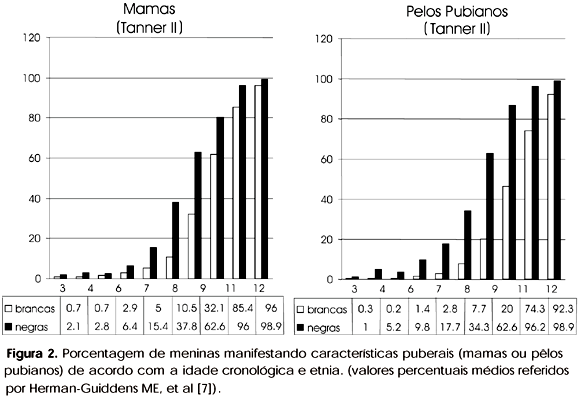New criteria have been proposed for the diagnosis and treatment of patients with central precocious puberty (PP) (GnRH-dependent). In girls, breast and pubic hair development are occurring significantly earlier than previously suggested. Usually, the age limit to consider puberty as normal is 9 years for boys and 8 years for girls. Between ages 6 and 8 years, some girls show isolated telarche or pubarche with absent or slightly elevated growth velocity (GV) and bone age (BA). This represents a constitutional acceleration of growth and puberty, and when compared to familial target, it presents no influence on predicted final height. Long-term clinical follow-up is recommended, but usually no treatment is required. On the other hand, pathologic GnRH-dependent PP is associated to progressive pubertal manifestation, increased GV and accelerated bone maturation, with consequent negative impact on the final height. The age of clinical manifestation is variable, and in part dependent on the etiology. When starting between the ages 6 and 8 the puberty is rapidly progressive. The cause for early hypothalamic-pituitary activation should be investigated by cranial MR. GnRH-dependent PP is best treated with slow-release GnRH analogues (leuprolide or tryptorelin). The initial recommended dose is 3.75mg IM, every four weeks. With this schedule, pubertal characteristics are efficiently controlled. The results on final height are influenced by the age of diagnosis and therapy, and the best outcome is observed when treatment begins before the age of 6. During GnRHa therapy, some patients show intense decrease in GV and substantial reduction in predicted final height. In this condition, additional use of growth hormone should be considered.
Precocious puberty; Diagnosis and treatment; GnRH agonists




